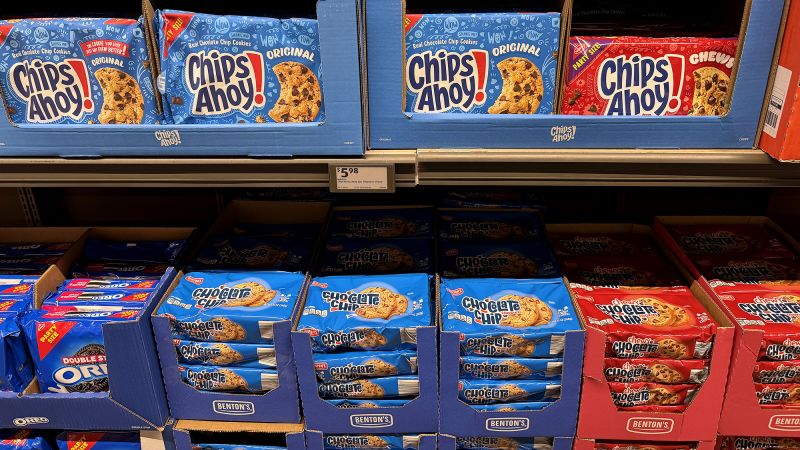In an intriguing turn of events in the retail snack industry, the snack powerhouse Mondelez International has initiated legal proceedings against the discount grocery chain Aldi. The lawsuit’s crux revolves around allegations that Aldi’s store-branded snack packaging closely resembles that of Mondelez’s well-known products, potentially deceiving consumers. The case was officially filed on May 27 in the federal court for the Northern District of Illinois, particularly notable as Mondelez, headquartered in Chicago, is the manufacturer behind iconic brands like Oreo, Triscuit, and Chips Ahoy.
The legal complaint outlines that Aldi’s imitative cookie and cracker packaging might mislead consumers into buying products they perceive as similar to the beloved Mondelez brands. Mondelez asserts that these actions are not just an innocent oversight but could lead to significant customer confusion. The accusations extend to Aldi’s peanut butter creme-filled cookies, chocolate chip cookies, and Thin Wheat crackers, which are said to share design elements akin to Mondelez’s Nutter Butter, Chips Ahoy, and Wheat Thins.
Adding to the narrative, Aldi has opted not to provide any comments in response to requests from CNN regarding the situation. The controversy is underpinned by a broader discussion on the ethics of branding and consumer perception. Aldi has carved out a niche for itself by primarily offering store-brand products at lower prices compared to established names, a strategy that appeals to budget-conscious consumers. However, Mondelez claims this practice has crossed a line when it extends to duplicating product designs and packaging that have been painstakingly developed to create brand identities.
Mondelez’s claims indicate that this isn’t the grocery chain’s first run-in with legal troubles. Previously, the snack giant had raised concerns with Aldi about similar “copycat” versions of their products, including recognizable designs associated with Oreo cookies and other classic snacks, such as Teddy Grahams, Belvita biscuits, Triscuit crackers, and even Tate’s Bake Shop cookies. According to Mondelez, Aldi has previously altered or discontinued products in the face of these warnings, suggesting a history of contested branding.
Crucially, Mondelez argues in its legal claim that if Aldi is not stopped, the infringing packaging poses a threat that could cause “irreparable harm” to its brand integrity. This statement underscores the significance of trademark protection and the lengths to which companies must go to safeguard their brand identities in an increasingly competitive marketplace. It brings to light essential issues surrounding intellectual property rights and the potential impacts of brand imitation on both consumer rights and business profitability.
The lawsuit seeks not only monetary damages but also a court order to prevent Aldi from continuing to sell the allegedly infringing products. This approach reflects a serious commitment from Mondelez to protect its intellectual property rights against what it perceives to be blatant imitation.
Notably, this legal battle is not an isolated incident for Aldi regarding its store-brand products. The grocery chain has previously faced similar lawsuits concerning the design and packaging of its snacks, with a significant case emerging last December. An Australian federal court’s ruling deemed Aldi liable for copyright infringement due to its children’s snack packaging, which bore a striking resemblance to Hampden Holdings’ Baby Bellies puffs packaging, demonstrating the brand’s contentious history in navigating the legal landscape surrounding product design.
Currently, Aldi operates over 2,400 stores across the United States and has announced expansion plans with intentions to open an additional 225 stores by 2025. The looming lawsuit adds another layer to Aldi’s operations and strategy as it navigates the complex relationship between its discount philosophy and the established brands that dominate the market. This ongoing struggle between branding and consumer perception not only highlights the challenges faced by companies engaged in retail but also reflects the broader dynamics and intricacies of the snack food industry.



